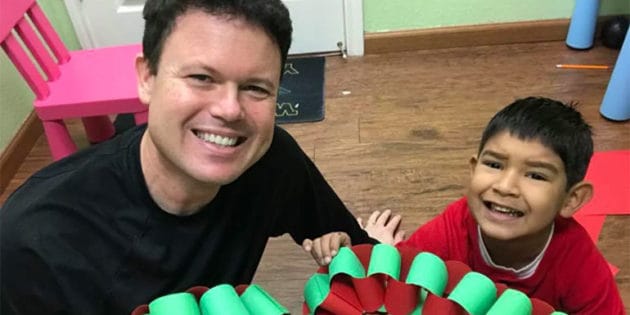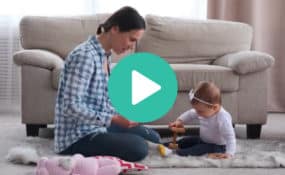I have received many responses regarding my last post about whether or not you, as the parent, should be in the therapy room with your child. Many of you emailed me asking two questions. The first question many of you asked was “how do I know what is happening in therapy, if I’m not able to watch?” And the second question many of you asked was “if I’m not observing my child’s therapy session, then how will I know what to do to reinforce therapy at home?”
Let’s talk about the first question. How do you know what is happening in your child’s therapy session? Your child’s therapist should be giving you regular updates. He or she should have a scheduled time set aside to sit down and discuss with you what skills they have been working on during each session. Your therapist should also explain how they have been working on those identified skills, and share with you what progress your child has made. My biggest frustration when I supervising a new therapist or therapist in training, is when they inadequately explain what they are working on during their therapy sessions.
Having a therapist say “we blew bubbles, played with blocks and colored” is simply not providing adequate information for the parent. Explaining therapy sessions in that way, makes it sound as if anyone can provide therapy, and a professional is not needed. What the therapist should have said was “we blew bubbles to try to get your child to make his mouth move to form the /f/ sound. In addition, we alternated stacking blocks in order to emphasize the importance of taking turns. Taking turns is essential for effective communication. And lastly, we colored pictures for the picture book we are creating in which we are featuring the /f/ sound that we have been working on.” This way of explaining therapy is not complex ore hugely involved, but it shows that goals were set and the activities used to reach those goals had a clear purpose. If your child’s therapist is not providing you with this type of information after your therapy sessions, ask questions! Having your child tell you what he or she did in therapy, does not give you enough information to provide adequate reinforcement at home. You need to know the goals that have been set for your child, and the reasons for using the chosen activities.
Next week I’ll discuss what you should be working on with your child at home and why you may not be hearing what you think you should.
- Don’t Know What’s Happening in Your Child’s Therapy? - February 12, 2018
- Don’t Know What’s Happening in Your Child’s Therapy? - February 12, 2018
- Don’t Know What’s Happening in Your Child’s Therapy? - February 12, 2018





